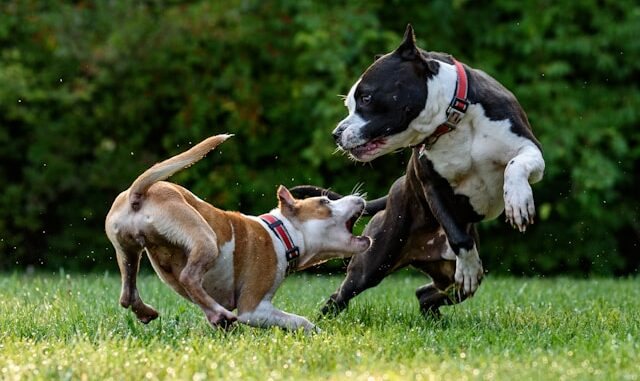
Ontario’s Dog Owners’ Liability Act (DOLA) serves as the legal backbone for addressing issues related to dangerous dogs and imposing necessary restrictions to ensure public safety. Over the years, various cases under DOLA have provided valuable insights into the interpretation and application of the law concerning dangerous dog designations and muzzle orders. This article delves into notable DOLA cases and examples in Ontario, shedding light on the complexities of these legal proceedings.
Case 1: Regina v. Smith (2017)
In this landmark case, the court grappled with the definition of “dangerous dog” under DOLA and the criteria for imposing muzzle orders. The defendant, Mr. Smith, owned a pit bull mix named Max, which was involved in an altercation resulting in minor injuries to a neighbor’s dog. Animal control authorities designated Max as dangerous and imposed a muzzle order, citing concerns about the breed’s reputation and the severity of potential injuries.
Mr. Smith contested the designation, arguing that Max had never exhibited aggressive behavior before and that the altercation was an isolated incident provoked by the neighbor’s dog. He presented testimony from trainers and behaviorists attesting to Max’s gentle nature and lack of propensity for aggression. Despite the defense’s efforts, the court upheld the dangerous dog designation but modified the muzzle order to apply only in public spaces, allowing Max to remain unmuzzled on private property under strict supervision.
Case 2: Ontario v. Brown (2019)
In this case, the court examined the circumstances surrounding a dangerous dog designation for a German Shepherd named Luna. Luna had a history of territorial behavior, including barking and lunging at passersby near her owner’s property. Following an incident where Luna bit a postal worker delivering mail, animal control authorities designated her as dangerous and imposed a muzzle order, citing concerns about public safety.
Luna’s owner, Ms. Brown, challenged the designation, arguing that Luna was merely exhibiting protective instincts and had never caused serious harm to anyone. Ms. Brown presented evidence of Luna’s obedience training and efforts to address her territorial behavior. The court ultimately upheld the dangerous dog designation but modified the muzzle order to allow Luna to be unmuzzled on private property, subject to strict supervision and the installation of secure fencing to prevent escapes.
Case 3: Toronto v. Garcia (2020)
In this case, the court grappled with the legal implications of multiple incidents involving a Rottweiler named Rocky. Rocky had a history of aggression towards other dogs, resulting in several altercations at a local park. Following a particularly violent confrontation where Rocky severely injured another dog, animal control authorities designated him as dangerous and imposed stringent muzzle and leash requirements.
Rocky’s owner, Mr. Garcia, contested the designation, arguing that Rocky was provoked in each incident and had never displayed aggression towards humans. Mr. Garcia presented evidence of Rocky’s positive interactions with people and efforts to manage his behavior through training and socialization. Despite the defense’s efforts, the court upheld the dangerous dog designation and the imposed restrictions, emphasizing the need to prioritize public safety in cases involving repeat offenders like Rocky.
Conclusion
These cases offer valuable insights into the legal complexities surrounding dangerous dog designations and muzzle orders under DOLA in Ontario. While each case is unique, common themes emerge, including the importance of evidence-based decision-making, the need to balance public safety with dog owner rights, and the significance of proactive measures to address behavioral issues. By understanding the nuances of DOLA and drawing lessons from past cases, stakeholders can navigate the legal landscape more effectively and advocate for the welfare of both dogs and communities in Ontario.
